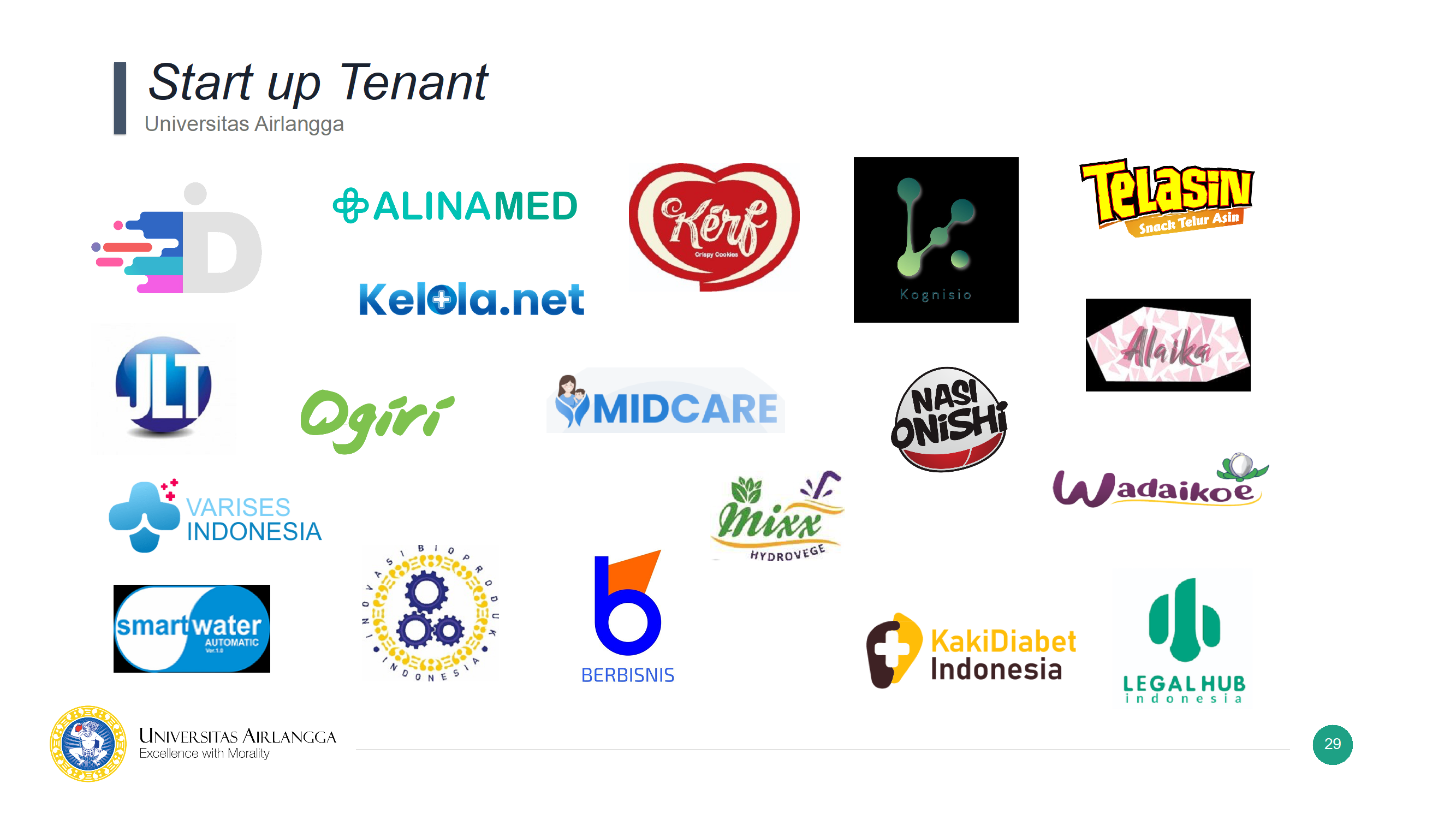UNAIR NEWS – Universitas Airlangga (UNAIR) pays great attention to students’ start-up businesses. There are various forms of support provided by UNAIR, including the establishment of a business incubator in late 2017 and early 2018.
Dr. Achsania Hendratmi, SE, or Achsania, a lecturer at Faculty of Economics and Business (FEB) UNAIR, also the Head of Business and Technology Incubator BPBRIN UNAIR explained that the total start-ups in BPBRIN UNAIR from 2017 to 2020 has reached 111 start-ups. Previously, in 2017 there were only three start-ups joining the Business & Technology Incubator.
“In 2018, start-ups in business & technology incubators increased to a total of 34 start-ups, which then became 86 in 2019,” she continued.
The focus areas of those start-ups are in the digital sector, reaching 54%. From 54% digital start-ups, 17% of them focuses on health issues.
Most faculties who joined the business and technology incubator came from Faculty of Economics and Business (FEB), with 32 start-ups. It is followed by the Faculty of Science and Technology (FST) with 24 start-ups.
“Several start-ups that have joined include Alinamed, Telasin, Legalhub, Kelola.Net, Varicose Veins Indonesia, Doing Business, Midcare, Kakidiabet Indonesia, and Smart Water,” explained Achsania.
The purpose of establishing UNAIR BPBRIN’s Business and Technology Incubator is to help UNAIR start-ups develop. After the incubation period, the start-ups are expected to run its business in a more stable manner, able to compete, and become a strong and independent start-up.
According to Achsania, business and technology incubator institute plays a very important role because in general, start-up companies are very vulnerable to failure or bankruptcy in the early stages of establishment. This failure can be caused due to lack of capital, difficulty in implementing technology, poor business management, and lack of experience in the business world.
The incubation process provided by the incubator includes assistance, guidance, training, facilitation of product development and access to financial and marketing institutions. All these facilities are expected to increase business and the product competitiveness of fostered start-up business.
“Therefore, through the incubation process given to these startup companies, hopefully they will be able to increase their business and increase the competitiveness of their products and businesses,” she concluded. (*)
Author: Galuh Mega Kurnia
Editor : Binti Q. Masruroh





